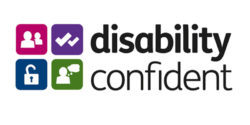Equity, Diversity and Inclusion
At the Trussell Trust our values of dignity, compassion, community and justice are at the core of who we are and how we work. Our vision is a UK without the need for food banks – to genuinely address the root causes of poverty, we must ensure people with lived experiences of poverty shape our work, and we must do our part in dismantling the structural discrimination that cuts across our society and locks people in poverty. Equity, diversity and inclusion is central to our work to achieving our vision of a UK without the need for food banks.

What we have been doing so far
We must be honest. We haven’t been a leader in diversity and inclusion. We’re at the beginning of a longer-term process and we know we have much more work to do. This can’t be about tokenism or lofty words – we need to work alongside communities and people with experience of poverty to ensure all of this work is meaningful, clear and adopted by everyone.
We know people need food banks when they don’t have enough money for the basics. And we know that the way our society works right now means most people having to resort to the support of food banks are already more likely to face barriers that can make it harder to afford the basics. Things like discrimination and health inequality can create some of those barriers for people with protected characteristics like race, disability and gender.
Our Hunger in the UK research shows us how those structural inequalities play themselves out:
- One in four (24%) people from an ethnic minority group experience food insecurity, almost twice the rate (13%) for white people.
- More than a quarter (26%) of disabled people experience food insecurity, nearly three times higher than the rate among non-disabled people (10%).
- Seven in 10 (69%) people referred to food banks in the Trussell Trust network are disabled, and three in four (75%) have at least one disabled person in their household.
- Households with dependent children are more than twice as likely to experience food insecurity compared to of those without dependent children (23% vs. 11%). This rises to almost half (48%) of single adults who live with one or more dependent child.
- More than a quarter (27%) of people who are LGBTQ+ experience food insecurity, compared to 13% people who are heterosexual.
We also know people aren’t one thing. No one is solely their ethnicity, gender, sexual orientation or disability. These things come together and intersect, and our society has – often invisible – structures which limit people in different ways depending on how these characteristics come together.
This isn’t right.
And it’s why meaningful diversity and inclusion work is core to our mission of ending the need for food banks.
So far we have...
Changed the way we recruit
Read more...
We’ve implemented an online recruitment platform that removes unconscious bias from our recruitment processes
We’re supporting our managers to be diversity-confident in how they recruit
We’re identifying gaps in our teams and what we need to do to address them
Started challenging conversations at all levels of our organisation around diversity and inclusion
Read more...
We’re consulting with teams across the charity on how we’ve been doing so far and our plans for the future
We’ve implemented training for our senior leadership team and trustees
We’ve begun a series of practical sessions around inclusive leadership for our board of trustees
Started developing ways to embed equity, diversity and inclusion meaningfully in all the things we currently do
Read more...
With staff across the organisation, we’re co-producing a diversity and inclusion strategy to review all areas of our work and tackle any under representation and structural discrimination
The Disability Confident Scheme
As an employer we’ve always provided opportunities within the Trussell Trust for disabled staff and volunteers, from our charity retail shops through to our head office. We’ve sought to make reasonable adjustments for staff and people applying to work for us, all of our Senior Leadership Group are mental health first aiders and we work with our wellbeing champions and healthcare provider to provide our team with extra support.
Through Disability Confident, we’re working towards:

Challenging attitudes towards disability and increasing understanding
Ensuring disabled people have the opportunities to fulfil their potential at the Trussell Trust
Removing barriers to disabled people and those with long-term health conditions
Our commitment
We can become a country where no one needs a food bank. But if we’re going to get there, we need to understand the inequality so many people face in the UK today, and confront the reasons why that inequality exists on a structural level. We’re committed to that challenge.
We’ll be updating this page with plans and progress in the coming months, but if you have any questions or would like to find out more, please email us at [email protected]